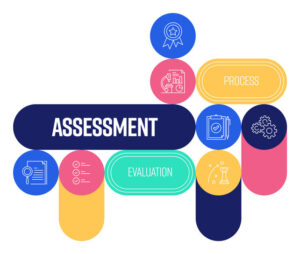Written by Scott Wilson

Florida is a place that has everything anybody would ever need to live out their dreams. But it’s also a place where plenty of new arrivals and lifelong residents alike find themselves struggling.
According to 2023 Census data, slightly more than 12 percent of people here live below the poverty line. Safe Home, an organization that tracks hate crimes and perceptions of LGBTQ+ individuals, ranks Florida second to last for LGBTQ safety. And social workers are more concerned than ever that new state laws singling out immigrants for persecution will put some 2 million Florida residents at risk, and threaten to disrupt the lives of millions more.
On the front lines in the fight for equal representation among marginalized groups and ensuring basic necessities and human dignity are afforded to all, social workers meet those problems head-on.
When an immediate solution is needed to help families displaced from their homes after hurricanes hit small communities like Apalachee Bay, who else if not social workers will find them suitable shelter… and when big changes in policy and law are the only hope for helping families throughout the state struggling with housing insecurity, who else other than social workers will show up in Tallahassee to rally for that cause in the halls of legislature.
Bringing creativity, training, and tireless dedication, social workers are the ones who handle it all.
Florida offers a tremendously accomplished slate of universities and colleges that are home to some of the best CSWE-accredited social work programs in the country. Whether you’re looking at undergraduate options, the MSW you need to become licensed, or pushing new boundaries with a Phd or Doctor of Social Work (DSW), you’ll have no trouble finding a degree here to help you become part of the solution at every level.
Florida’s CSWE-Accredited Social Work Degrees Are Designed to Meet State Licensing Requirements
Like most states, Florida law requires that social workers earn a CSWE-accredited MSW to qualify for a clinical license to perform diagnoses and counseling services – the Licensed Clinical Social Worker (LCSW).
Florida also has a separate license required for advanced roles in general practice – the Certified Master Social Worker (CMSW).
Even the temporary Registered Clinical Social Worker (RCSW) Intern license required to gain the clinical experience you need for clinical licensure requires an MSW.
Given that fact, it’s not surprising that the majority of social workers in the state hold MSW degrees.
According to the US Department of Labor, a full 35% of Florida social workers in healthcare hold an MSW, while 36% who specialize in child and family welfare and school social work have earned their MSW. In mental health and substance abuse counseling, it’s nearly twice that, with 66% holding an MSW as of 2023.
The credentials for social workers offered through the Florida Board of Clinical Social Work, Marriage & Family Therapy and Mental Health Counseling also have specific coursework requirements:
- Licensed Clinical Social Worker (LCSW) and Registered Clinical Social Worker (RCSW) Intern - Require an MSW with at least 24 semester hours of coursework in the theory of human behavior and clinically-oriented services, including a graduate course in psychopathology.
- Certified Master Social Worker (CMSW) - Requires an MSW with at least 3 semester hours in agency administration and supervision, program planning, staff development, and other macro and leadership functions.
Although you will also need to meet other stringent requirements, like post-graduate supervised practice, testing, and ethical standards, a graduate-level college education is fundamental to becoming a social worker in the Sunshine State.
The Council for Social Work Education (CSWE) Stamp of Approval Ensures Quality and Eligibility for LCSW and CMSW Licensure
 The Council for Social Work Education (CSWE) plays an important role in establishing education standards for the 14 BSW and 13 MSW programs offered at universities throughout Florida.
The Council for Social Work Education (CSWE) plays an important role in establishing education standards for the 14 BSW and 13 MSW programs offered at universities throughout Florida.
CSWE is the only specialty accreditation organization for social work recognized by CHEA, the Council for Higher Education Accreditation. That means they’ve been verified as the group with the right expertise, professional connections, and evaluators to validate programs designed to prepare professional social workers.
That’s important not just for the quality of your education and its value to your career. It’s also key to ensuring the people you serve get counseling and assistance that meets the highest national standards.
That’s because only CSWE-accredited MSW programs are accepted by the Florida Board of Clinical Social Work, Marriage & Family Therapy, and Mental Health Counseling for licensure. Similarly, only CSWE-accredited BSW programs are automatically accepted as qualification for entering advanced standing CSWE-accredited MSW programs.
Schools of Social Work in Florida Lean Hard into BSW and MSW Degrees, as Well as Graduate Certificates

Even if an MSW is your ultimate destination, you’re going to have to pass through one or more other degrees on your way there. And there’s no reason you necessarily have to stop at a master’s—plenty of universities in Florida offer post-graduate certificates, and for a few select students, doctoral degrees are also available.
You’ll find all of these options for your social work education in Florida:
The four-year Bachelor of Social Work is most often used to shorten your total path to LCSW or CMSW licensure in Florida by qualifying you for entry into an advanced standing MSW program. But a bachelor’s is a full education in its own right, with a full course of liberal arts education that delivers critical thinking and general reasoning skills. Combined with a diverse range of human and social services training, a BSW can lead to important jobs in macro and mezzo level social work anywhere in Florida.
As of 2023, 16% of mental health and substance abuse social workers in Florida held BSW degrees. More than a quarter of social workers in healthcare here have a BSW, while a full 38% of Florida’s child, family, and school social workers hold BSWs according to the latest data published by the US Department of Labor.
The MSW, of course, is the standard preparation for any kind of licensed social work in Florida, both clinical and generalist practice. Two years of advanced coursework in human behavior, social systems, and clinical treatment equips you for direct patient services or leadership roles in social justice and human services.
An advanced standing MSW does everything for your social work career that an MSW can do, but it can do it in half the time in many cases. Of course, a BSW is the necessary path to enter these programs in the first place. But when you put the two together, you can go from high school graduate to fully registered social work intern in only five years.
With a master’s in social work being the bar you need to clear to qualify for LCSW or CMSW licensure, it’s no surprise that most of Florida’s social workers eventually earn MSW degrees.
All of these other social work degree programs need highly qualified professors at the lectern. The most common path to that role is the PhD, a four year degree that emphasizes research and academic skills. The state of knowledge in social work is pushed forward daily by social workers with PhDs. For the most advanced practical skills in social work, the practice-focused DSW, or Doctor of Social Work, is where leaders pushing the peak of the profession go for further education.
Even with the practice-focus DSW gaining in popularity, a doctoral-level education is still largely about advancing the field through research taking place behind the scenes. You can see this in the relatively low number of doctoral-prepared social workers out in the field.
The US Department of Labor shows just 2% of Florida’s child, family, and school social workers and 2% in the healthcare sector held doctoral degrees as of 2023. Among Florida’s mental health and substance abuse social workers, 5% held doctorates.
Many of the same schools offering CSWE-accredited BSW and MSW programs in Florida also offer post-degree certificate programs. Polishing up your expertise in niche subjects in social work practice can be tough if you decide to switch focus after earning your BSW. And it’s equally challenging to get the specific combination of classes required for clinical licensure if you decide late in the game to pursue the LCSW and your MSW was in a non-clinical generalist track. A certificate is the answer. Lasting for just a few months, these programs still incorporate all the college coursework you need for specializations. They are a path to lifetime learning for social workers expanding their skillset or making mid-career course corrections toward new opportunities to help.
Associate degrees related to social work are something of a rarity in Florida, offered at just three community colleges and universities around the state. But depending on your circumstances, it could be best to start your social work education with a basic introduction at one of the few offering associate degrees. With a transfer agreement to a four-year university, it can serve as the first half of a full bachelor’s degree. Even without a formal transfer agreement, at least some credits would transfer. In your future studies, you’ll lean heavily on the combination of general education courses and foundational skills you could pick up in an associate program.
The idea that an associate degree is just the starting point for further education in a high skill field like social work is clear when looking at data on how few social workers in the state have two-year degrees:
The US Department of Labor shows just 3% of mental health and substance abuse social workers in Florida hold associate degrees as of 2023. Among those working in healthcare, 6% have associate degrees, while it’s 8% for those in child and family welfare and school social work according to the latest data.
It’s a sure thing that you will end up in one or more of these types of degree programs over the course of your career in social work in Florida. You may want to view your social work education as an ongoing process, with different types of degrees making more sense at different stages of your career.
Earning a Social Work Degree in Florida Puts You on the Right Side of History
 When the normal systems break down or allow people to fall through the cracks, social workers are the people who are there to pick them up again. They are also at the forefront of calling out the failings in those systems and advocating for social justice and equality for all. You could see that clearly by the scores of Florida social workers who led protests in response to the 2012 murder of Treyvon Martin in Sanford, and again after the man who killed him was acquitted.
When the normal systems break down or allow people to fall through the cracks, social workers are the people who are there to pick them up again. They are also at the forefront of calling out the failings in those systems and advocating for social justice and equality for all. You could see that clearly by the scores of Florida social workers who led protests in response to the 2012 murder of Treyvon Martin in Sanford, and again after the man who killed him was acquitted.
When you get down to it, then, social work degrees are all about equipping students with the skills and information needed to make a better world.
As you can imagine, that takes all kinds of different approaches and techniques. Social workers serving the 69,000-plus people residing in Florida’s nearly-700 skilled nursing facilities need in-depth familiarity with health insurance and medical treatments to help patients prepare for discharge or resolve complications. Those working in outreach to contact the more-then-31,000 unhoused people across the state need strong communication skills and an ability to build rapport quickly, as well as a catalog of short-term and long-term rehousing and resource options.
These are techniques and knowledge that can take years to build and master, but a formal college degree is where every Florida social worker gets their start.
The Skills and Concepts To Make Florida a Better Place Come through a Tailored Curriculum

Clearly, the kind of classes that you can expect with your social work degree program are going to vary with the difficulty level of the degree itself. Bachelor’s degrees come with general education and introductory courses that lay out the basics; master’s and doctoral programs are packed with in-depth, advanced training.
There’s another difference between undergraduate and graduate social work studies that fulfill different aspects of the educational process.
Undergraduate degrees in social work are about setting the foundations for your future education and giving you the core organizational, communication, and business competencies to function in the professional world. This comes through time-tested liberal arts coursework in languages, science, social studies, and history that shape your worldview and expand your ability to empathize and connect with people.
Graduate degrees in social work are aimed more at research and cultivating specialized expertise in the field. The coursework is designed to build on what you have learned through earlier degrees. Graduate courses tend to have fewer students in each class and a larger degree of interaction with instructors. You will find yourself drawn into and allowed to shape the conversations in class as you explore advanced concepts.
Naturally, these purposes fit together, particularly for BSW students who eventually go on to advanced standing MSW programs.
At all levels, though, you’ll be looking at developing social work knowledge and skills in the same general areas. These are the core aspects of social work that help you connect with individuals, understand their issues, and develop solutions to assist them.
- Understanding Human Services Systems - You’ll be taught the history and development of the modern human services system at the federal, state, and local levels. Understanding how the social safety net works and how it is funded can be key to being an effective social worker at any level.
- Increasing Your Communication and Connection Skills - You wouldn’t be aiming for a social work job if you didn’t have empathy. But you’ll have to turn your concern and understanding into real connections to earn the trust and confidence to make a difference for your clients, and those are skills that come through these classes.
- Cultivating and Finding Resources for Client Assistance - No social worker can do it all. Much of your effectiveness won’t come through your own direct interventions, but instead in understanding what the right resource is to meet the client’s need and performing effective referrals and advocacy so they receive those critical services.
- Counseling and Direct Services - At the same time, direct clinical intervention can indeed be where you make the biggest difference in individual cases. You’ll be taught psychosocial theory and behavioral interventions to help people find their own way back to the right track in life.
- Maintaining Ethical and Professional Standards - Dealing with vulnerable populations requires the highest standards of ethics and professionalism. You’ll study the roots of ethics and moral philosophy and examine case studies and dilemmas of the sort that you may have to confront in the field yourself.
Facing the Ethical Challenges of Teaching Social Work in Florida
 It’s no secret that Florida has become a pretty challenging place to both study and practice social work over the past few years. A relentless onslaught of legislative and administrative attacks on immigrants, LGBTQ+, and diversity, equity, and inclusion efforts have hit social workers in the Sunshine State right where they live.
It’s no secret that Florida has become a pretty challenging place to both study and practice social work over the past few years. A relentless onslaught of legislative and administrative attacks on immigrants, LGBTQ+, and diversity, equity, and inclusion efforts have hit social workers in the Sunshine State right where they live.
In particular, a 2023 state law barring DEI spending in public universities directly conflicts with CSWE (Council for Social Work Education) requirements for social work programs to include anti-racism and DEI throughout all elements of instruction. Although both the state and CSWE are keeping their thoughts close to the vest, there are signs that the conflict is on the radar.
Putting aside the fact that it’s ridiculous that state law both requires CSWE accreditation and blocks it from being taught, this results in an ethical challenge of the highest order for social work instructors… most of whom will be graduates from social work PhD programs.
Those are the experts who will have to square the circle between lawmakers and accreditors — and to continue teaching the kind of social justice tactics that Floridians need now more than ever. When the conflict is resolved, and social justice wins out, as it must, it’s going to be PhD grads who make it happen.
Degree Concentrations Fit Your Education to Your Career Goals in Florida Social Services

You’ll also find that your coursework can vary based on another factor in your degree: specialized concentration options that are sometimes available.
US Department of Labor projections show a 16% job growth rate for Florida’s healthcare social workers during the ten-year period leading up to 2032, a full 6% faster than the national average for this job category.
These are quite common in master’s programs, often available at the bachelor’s level. Doctoral degrees are a special case, with almost every student choosing their own unique path in some respect.
Concentrations are a way to ensure your social work education meets the unique needs of the particular population or the types of services you plan to build your career around.
Specialties offered through the 15 CSWE-accredited schools of social work here in Florida as part of BSW minors, MSW concentrations, and certificates that can be stacked on top of your degrees are:
- Clinical Practice
- Child Welfare / Children and Families
- Advocacy and Social Justice
- Criminal Justice
- International Social Work
- Gerontology / Aging Studies / Healthy Aging
- Addictions / Substance Abuse
- Medical / Healthcare / Health and Wellness
- Military and Veterans
- Nonprofit Management
- Social Welfare and Policy
- Social Work Administration / Social Leadership
And if you have a big ambitions about how you can effect real change in the Florida criminal justice, juvenile, and family court systems, you’ll even find a duel degree option that allows you to earn a Juris Doctor/Doctor of Law (JD) degree alongside your MSW.
And the same kind of option is available in the public health domain where a dual degree option is available that lets you earn a Master of Public Health (MPH) along with your MSW.
And in Florida especially, there’s no shortage of populations you could specialize in serving — from elderly veterans once stationed at Camp Blanding or one of the other 20 bases here who are now struggling with homelessness… to kids growing up poor in rural South Florida where the opioid crisis hit the hardest… to desperate families arriving daily from Latin America carrying everything they own in their arms.
Social work takes in so many different kinds of needs that it’s all but impossible for a standard degree to teach everything you need for any one of them.
A concentration, or focus, in your degree plan stacks the deck with classes that are uniquely useful in certain kinds of social work.
Concentrations have no impact on your licensing, but they can make a big difference in your qualifications for specific social work jobs.
Getting Hands-on Experience Is a Common Thread in Florida Social Work Degrees
Social work students in Florida are likely to spend their time off-campus in the places that few other college students get to see. Experiential learning is a key part of your social work education — putting you out there with private non-profits that are prolific in almost every aspect of child welfare in Florida, working for Florida Health or other government agencies, and with community organizations like Miami-Dade Community Action and Human Services.
Field work is an integral part of MSW and practice-focused DSW programs. It’s also important in BSW degrees, and even many associate programs.
This comes through internships and practicum placements with genuine social and human services organizations that deal with critical Florida needs like immigrant and refugee assistance and geriatric care.
Practicum is a part of the standard curriculum, a for-credit class that includes substantial time working at one of these organizations as a part of your coursework. Practicum class placements tend to be short, no more than a semester, and tightly integrated with your coursework.
Internships are typically longer and may be credit or non-credit. They offer more independence for on-the-job learning, with most of your supervision and education coming directly from other staff at the organization.
Both kinds of field work help with that critical task of turning your book smarts into real client care skills.
Should You Consider Online Social Work Degrees in Florida?
 Florida colleges are leading the way in online education, and schools offering CSWE-accredited degrees here are no exception.
Florida colleges are leading the way in online education, and schools offering CSWE-accredited degrees here are no exception.
You’ll find them available at every level, as well as hybrid combinations that mix and match online and in-person classes.
Field placements remain in person even with online social work degrees, but can typically be arranged with organizations that are local to your area.
Online studies come with advantages for students at every level, too.
- Associate in Social and Human Services students are often starting at the two-year degree level for reasons of affordability and uncertainty about their path. The ability to live at home and schedule courses flexibly makes online approaches even better for these students.
- Bachelor of Social Work students are in a hurry to get qualified to get to work in the field. The flexibility here goes in the other direction, allowing them to cram in a lot of studies in a short period, without wasting time on commuting.
- Master of Social Work students are older and may have family and professional obligations. Being able to shift classes around to different times of day is pure gold for their needs, as is avoiding relocating in order to attend school
- While relatively few PhD or Doctor of Social Work degrees are offered online, they double up on the already flexible nature of such programs. That brings the highest levels of study into reach for students who might otherwise never have considered the option.
Social Work Degrees Can Open Up Every Job Under the Sun in Florida
Becoming a social worker is, of course, the first and most common destination of people earning these degrees. But it’s far from the only option.
Particularly at the undergraduate level, you can turn your social work education in the direction of almost any social or human service career track. The key ingredients of social work education also build your abilities to step into roles such as:
- Human Services Case Manager
- Social Activity Project Manager
- Human Services Counselor
- Youth Care Specialist
- Recreational Coordinator
- Housing Case Manager
- Child Advocate
And social work degrees at the master’s level are excellent preparation for other tracks and branches of the human services career family. They provide a solid grounding to go into counseling, therapy, substance abuse treatment, and other key fields that coordinate with social workers to deliver care and support across the state of Florida.
No matter where you decide to apply the education from your social work degree, you have strong job prospects—the U.S. Department of Labor projects that community and social services jobs in general will be the fourth fastest growing occupational group in the country over the next decade.

Even within the field of social work itself, there are a tremendous number of options open to you with these degrees.
The big divide in the profession is the three-way split between micro, macro, and mezzo social work jobs.
Micro social work is where the most direct, hands-on engagement with clients takes place. These jobs are typically clinically focused and require an LCSW. They involve clinical assessments and diagnosis of common behavioral and mental health disorders (everything from substance use disorder to PTSD), followed by counseling and other psychotherapeutic treatment methods for individuals and families.
US Department of Labor projections show a 17% job growth rate for Florida’s mental health and substance abuse social workers during the ten-year period leading up to 2032, a full 5% faster than the national average for this role.
Mezzo social work is one step removed from the immediacy of clinical treatment. These positions are vital to keeping the social services system running and are often responsible for developing and deploying social programs at the community level, and managing them on the ground. At the mezzo level, you’ll find case managers, community group leaders, grant administrators, and community advocates and organizers.
Macro social work is all about the work happening at the highest levels to ensure the funding, resources, and political will is there for micro- and mezzo-level social workers to take care of their communities and clients. At the macro level you’ll find social workers shoring-up and strengthening the system itself. Macro social workers are heavily involved in creating policy, managing social services organizations, and lobbying for new funding and new forms of assistance for Floridians in need.
There are also different branches of social work that take in various specializations. The Bureau of Labor Statistics, for example, divides social work jobs into four groups:
- Child, family, and school social workers
- Healthcare social workers
- Mental health and substance abuse social workers
You need a degree in social work to be successful at any of those levels:
In clinical work taking place at the micro-level, there is no wiggle room in the requirements – you need a Master of Social Work and LCSW license from the state of Florida for the legal authority to diagnose and counsel clients.
With community program work taking place the mezzo-level, you’ll find both licensed and unlicensed social workers and both lower and mid tier jobs that call for a BSW or lesser undergraduate qualification, as well as jobs that insist on the kind of expertise and experience that comes with an MSW and a state-issued license.
At the mezzo-level with social workers pushing for policy change in the halls of legislature, it’s almost always advanced practitioners who have been in the game for decades who rise to these kinds of influential positions. As a matter of course, that means MSW and even doctorate-prepared social workers who may have spent a large part of the their careers licensed for clinical practice with an LCSW or working at the community level with a CMSW by itself or stacked on top of an existing LCSW.
These are the most common paths, but they don’t come with guard rails. Florida is a buzzing hub of energy and innovation.
Maybe you have a bright idea for raising awareness of social issues through youth support in the arts in the ways that Opp-Guide of South Florida has… or maybe you see a unique way to create employment opportunities for marginalized groups in the ways that Rising Tide Carwash in Coral Springs has done for people on the autism spectrum. Whatever workable idea you might have, you’ll find a social work degree gives you the tools to make it happen.
Your imagination and your energy are the only limits. One thing is for sure, though — with the knowledge and connections that come from a social work degree to back up your efforts and creativity, you can’t help but make Florida a better place for everyone here.
MSW & BSW Degrees By County in Florida
Good and effective social work can happen at every level of society, but when you get right down to it, the real show is in local communities. Getting to know your neighbors, their needs, their existing support systems, the resources available, and the powers-that-be are all part of what makes you shine in any kind of social work specialty.
For many social work professionals in Florida, that process of getting engaged with the community that you plan to serve starts long before you get a job, or even a degree, in the field. In fact, a lot of it may happen as you earn that degree itself.
You may well be coming from the very same county that you plan to lift people up in.
That’s because every school of social work is indelibly tied to the place where it lives and breathes. The professors live there; internships and volunteer projects happen around town; you and your fellow students will see the same people around the area who you may be serving someday.
So it’s a good idea to start your search for BSW or MSW degree programs in Florida in the area you plan to work. And if you aren’t quite sure yet, we paint a picture for you of the human services needs and social work education you’ll find in these counties.
Anchored by Jacksonville and the heavy military presence there, social work degree programs in Duval County are a great place to get exposure to the VA or military social work specializations. But as one of the fastest growing and most diverse parts of the state, you can’t go wrong studying here when it comes to experience and exposure to every kind of social work specialty.
Escambia is a slice of the panhandle that takes you from the bright beaches of Pensacola into the old-Florida feel of Century. It’s got a mix of challenges reflecting that diversity, all of which you can learn about in-depth and begin to get a handle on through the BSW and MSW programs offered here.
The Tampa and St. Petersburg area is a hotbed of growth in Florida, bringing the edges of urban and rural poverty and diversity together in sometimes uncomfortable ways. Nonprofits here have their hands full in crisis and homeless management as well as coping with child welfare concerns and the fentanyl epidemic. It’s all on the menu for students studying for MSW or BSW degrees at Hillsborough County universities.
Fort Myers doesn’t always get a lot of attention from other parts of the state, so it’s a good thing that Lee County has its own strong social work schools and innovative home-grown solutions to deal with the cross-currents of mental health, healthcare, crime, and drugs. Local social services agencies are hiring, and odds are they’ll be looking for graduates familiar with the area.
Home of state capital Tallahassee, Leon County MSW and BSW students get an up-close and personal view of how social services programs are created and funded in Florida state government. If you’re looking for a place to study your craft and at the same time make connections that can make a huge difference in macro-level social work, the universities here have you covered!
A diverse urban juggernaut that nonetheless has plenty of neighborhoods filled with character and charm, Miami is one of the best places in the entire country to study social work. A city of immigrants, retirees, rich and poor, it has strong BSW and MSW programs to offer you expertise in just about every kind of social work specialization you might be interested in.
Social work schools in Orlando are right next door to the most touristed places on Earth, but they deal with a lot of consequences of the human condition that are far from happy. The contrast between Disney World and the conditions in which workers and the area’s many retirees live could not be more stark. But if you’re studying to do something about the strains of disparity and access to services, this is the right place to earn a degree in social work.
Palm Beach is one of the places in America that is breaking new ground in integrating a social work presence into law enforcement and other emergency response teams. If your interests lie in that direction, there’s no better place to study for your BSW or MSW.
Stretching from swampland to seashore, Pasco County has the full range of social work issues that a Florida county can experience. Suburban retirement villages stretching up from Tampa are creating new demands in geriatric social work, while poverty and drugs are hollowing out towns like St. Leo further inland. Well-educated MSW and BSW graduates trained here are hard at work dealing with all the problems.
One of the last bastions of a shrinking middle-class in Florida can be found here in Lakeland and Lake Wales, wedged between Orlando and Tampa. But the challenges in keeping this oasis strong in the face of threats like rising healthcare costs or the encroaching fentanyl epidemic take well-trained social workers, and that’s exactly what Polk County BSW and MSW programs are producing.
